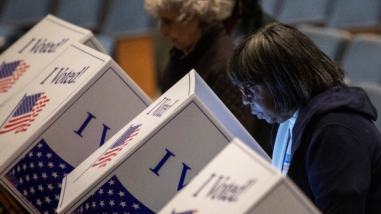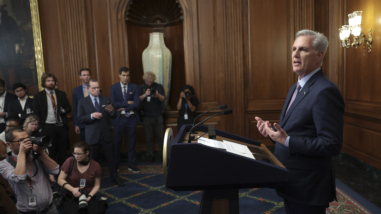Massachusetts Institute of Technology
For The Blended Learning Open Source Science Or Math Studies II Project (BLOSSOMS II)
-
Amount$300,000
-
Program
-
Date Awarded7/19/2010
-
Term24.0 Months
-
Type of SupportProject
Strategies
Overview
In 2002, Professor Richard C. Larson founded MIT Learning International Networks Consortium (LINC) (http://linc.mit.edu/) to reach out to educators in developing countries regarding technology-enabled education. With partners in Jordan and Pakistan, this project has created an OER repository of blended-learning video modules to supplement basic high school math and science curricula. This grant would continue to support production of videos, align them to U.S. high school standards, and shift MIT LINC to become part of our deeper learning strategy.
About the Grantee
Grantee Website
www.mit.edu
Grants to this Grantee
for CEEPR’s Industrial Strategy Economic Monitor
A team at MIT, in collaboration with researchers at Stanford and Employ America, is developing the Industrial Strategy Economic Monitor to assess progress implementing U.S. industrial strategy. The monitor will feature a data tool enabling users to easily visualize and download data — including on employment, input costs, investment, output, and trade — and a dashboard summarizing data by industry and production stage. It will facilitate close-to-real-time assessment of tailwinds and headwinds for targeted industries and the broader macroeconomy, spur debate and research on the best way to evaluate industrial strategies, and promote high-quality, nonpartisan analysis of the industrial strategy experiment.
for support of the AI + Open Education Initiative
MIT Open Learning transforms education at MIT and around the globe through innovative digital technologies. With this grant, MIT Open Learning will solicit rapid response papers and multimedia projects from stakeholders in the United States and internationally to articulate how generative AI might accelerate (or hinder) the promise of open education to offer engaging learning experiences. This work will draw upon MIT’s connections with trailblazers who are shaping AI and open education, and it will inform approaches for developing effective teaching practices and bolstering an inclusive open education field responsive to diverse stakeholders. (Substrategy: Field Building)
for support of the Election Data and Science Lab
The MIT Election Data and Science Lab advances and disseminates scientific knowledge about the conduct of elections, primarily in the United States but with attention to the rest of the world. By addressing the multiple audiences of academic researchers, the general public, and practitioners, it serves a unique role among individuals and institutions dedicated to improving the conduct of American elections, and it supports a growing network of election science research centers across the U.S.



